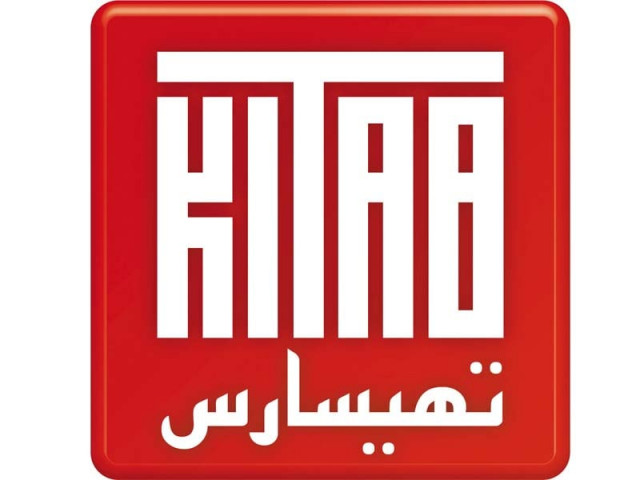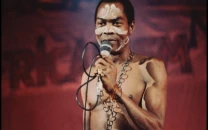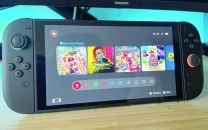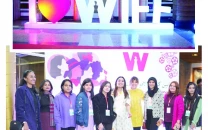At a loss for words? Urdu’s first-ever online thesaurus is up
Novelist, translator Musharraf Ali Farooqi spent five years on it

While the Android app is available for free download, work on the iOS app is currently underway. PHOTO: PUBLICITY
Urdu Thesaurus is the brainchild of novelist and translator Musharraf Ali Farooqi who has had the idea of making one, at the back of his head, for the last 10 years. “I collected dictionaries, chose the ones that were reliable, and began the data entry a long time ago,” he toldThe Express Tribune in an email interview.
Explaining the process, he added, “There was an initial proofreading exercise which I did myself. The data from different dictionaries was then merged, another proofreading was done to remove duplication, and it was set in Microsoft Excel and proofread yet again.”
He also acknowledged Urdu Thesaurus’ technology advisor Dr Awais Athar’s contribution. “I had met Dr Athar once in Lahore to discuss how to crowd-source the proofreading of large texts, such as the Urdu Dastan-e Amir Hamza, which goes on for 46,000 pages. I approached him again in 2015, and requested his help. He kindly agreed.”
Farooqi said Dr Athar has been working on the database and mobile app since October 2015. “The whole point of making the Urdu Thesaurus is that the search function should work efficiently and the interface should be simple to use. These were the guiding principles on which we tested the different versions, and as new features suggested themselves to us, we kept adding and testing them,” Farooqi added.
For him, the credit for Urdu Thesaurus belongs equally to Dr Athar. The project’s editorial advisory board comprises Dr Tehsin Firaqi, Dr Moeen Nizami, Muhammad Salim-ur-Rehman and Dr Mazhar Mahmood Shairani.
As they often say, the job of a lexicographer is not like that of a scholar, poet or writer. “Lexicographers do not invent words. The Urdu Thesaurus, too, is a compilation effort,” Farooqi said.
When asked about the sources through which he pieced Urdu Thesaurus together, he added, “I have used every Urdu dictionary that I could access and which had a list of synonyms. The bibliography will be released upon the completion of the work.”
For now the tool is afforded by Farooqi’s own pocket. “I tried to get some funding from a couple of places but it did not work out, so I continued working with my own resources and that slowed down the work,” he said.
An uphill battle
In the novelist’s own words, making dictionaries is a long, arduous and thankless task. Perhaps that is why not many people are attracted to it. Rafiq Khawer took 20 years to put together Urdu’s most popular thesaurus. Farooqi, on the other hand, has spent only five.
Due to its digital footprint Urdu Thesaurus may have come, as Faiz would say, like the soft desert footfalls of the breeze, Farooqi nowhere claims that his work is final and epoch-making.
“No dictionary is ever complete. It always remains a work in progress. This is just the beginning of the work. It offers not even 5% of the data and features that it will offer once it is complete,” he said, adding, “I am hoping that after the release of this Beta version, we can get funding to scale it up. We plan to add a lot more data, and many more features to make it a powerful educational resource.”
When asked where he got the motivation to do something no one else wants to do in Pakistan, he offered a few reasons. “The desire to do something for a language you love; having the confidence that you will find others who will share in your vision; and also a little bit of a mad streak. I can say that everything was there in plentiful supply.”
Gaining popularity
The need and market for such online resources can be gauged from the sort of response Urdu Thesaurus has received so far. Google Analytics suggests in its first week alone, the thesaurus has been used in 252 cities of 66 countries. “This is an extraordinary number. Even I was not expecting this kind of wide reach and presence of Urdu language in different parts of the world.”
While the users’ wish list will surely be long and quite demanding, next on Farooqi’s cards is a dictionary of antonyms. “Then dictionaries of phrases, idioms and proverbs. The planning and dreaming never ends,” he added.
Change is the only constant
In an earlier interview, the Between Clay and Dust writer had stated that a lot of the Urdu language is hidden from view.
On the flipside, he also believes that languages evolve and words go in and out of currency. “And I am willing to accept that process for Urdu words once we become a fully literate society.” In his view, it is the general state of education and the inaccessibility of literature and good linguistic resources that has made us forgetful and blind to the power and possibilities of Urdu.
He went on to say, “As someone who translates from classical Urdu into English, I know that very few people have access to the classical idiom today. Even fewer can read classical Urdu texts and work on making their modern annotated versions.”
Farooqi also touched upon another aspect of this debate. “I say that if we are not reading our classics in modern editions, their vocabulary is not dying a natural death. We are at fault,” he maintained.
The long run
In both journalism and academia, we are often advised against trusting dictionaries and thesauri randomly lifted off the market. When it comes to Urdu, more often than not, scholars generally opt for British scholar John Thompson Platts’ work that he compiled over 100 years ago.
While there is general consensus over the authenticity of Syed Ahmed Dehalvi’s Farhang-e-Asifiya and Noorul Hasan Nayyar’s Noorul Lughaat, access and availability are key issues. There’s also the Urdu Dictionary Board’s 22-volume dictionary, which Farooqi too considers reliable, but none of these three is available for free to anyone and everyone with a working internet connection.
Where attention is seldom paid to such matters in Pakistan, it should not come as a surprise that folks at University of Chicago took the pains of digitising Platts’ dictionary, which itself has become a little outdated.
In this regard, Farooqi’s continually developing Urdu Thesaurus will prove its significance in the long run.
Published in The Express Tribune, July 25th, 2016.
Like Life & Style on Facebook, follow @ETLifeandStyle on Twitter for the latest in fashion, gossip and entertainment.



















COMMENTS
Comments are moderated and generally will be posted if they are on-topic and not abusive.
For more information, please see our Comments FAQ